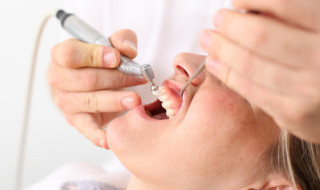
Preventative treatments offered by dental hygienists and therapists are the most popular treatments provided in England.
That’s according to new statistics from the Health and Social Care Information Centre (HSCIC), which found that a scale and polish made up for 45.2% of all treatments for adults in the 24 month period to 30 June 2015, and fluoride varnish treatments were the most frequent treatment for children.
‘With more than 16 million patients having preventative treatments on the NHS, dental hygienists and therapists have seen their roles take centre stage in helping to shape the current state of dental care in England,’ president of the British Society of Dental Hygiene and Therapy (BSDHT), Michaela ONeill said.
‘We as therapists and hygienists are eager to continue to promote the importance of preventative treatments.
‘This recent report has also worryingly shown that for the first time since 2013, people who have visited an NHS dentist has fallen.
‘This needs to be addressed to help improve the state of the nation’s dental health.
‘We are especially keen to address the state of children’s dental health, where shockingly almost one in 10 NHS treatments includes tooth extraction.’
NHS dentistry
In total, 30 million patients or 55.7% of the population saw an NHS dentist in the 24 month period to 30 June 2015.
The report from the HSCIC covers dental activity carried out by ‘high street dentists’ under NHS contract and does not take into account private treatments.
‘We believe hygienists and those dually qualified will play a continuingly important role in shaping the future of dental care in the UK,’ continued Ms ONeill.
‘Preventative and maintenance treatments are evidently the key to driving the NHS forward and we feel that there can be even more changes that will help to streamline NHS dentistry.
‘Changing the contract under which hygienists and the dually qualified operate to allow them to open CoT’s will prove to be a highly time and cost effective measure.
‘This measure will ensure that some dentistry treatments, such as maintenance periodontal needs, will not have to be initiated by a dentist, freeing up their time and speeding up the process for everyone including the patient.’


